How Are Women’s Livelihoods and Financial Needs Changing in a Digitizing Economy?
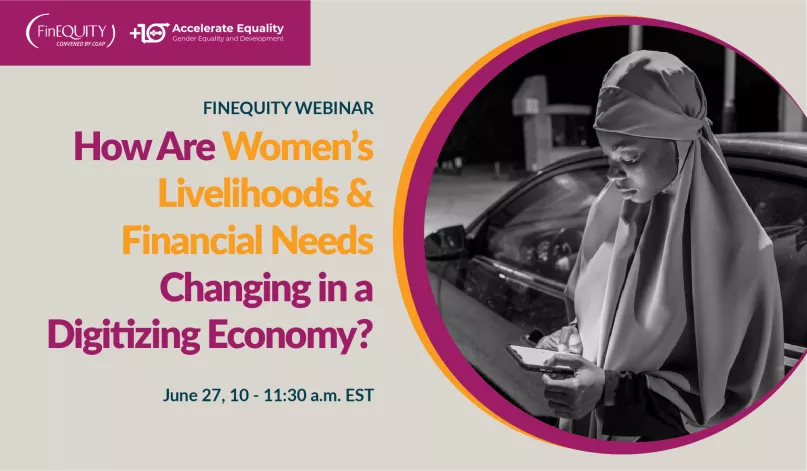
Digitalization and technology are rapidly transforming women’s livelihood opportunities in various sectors. Digital labor markets, e-commerce platforms and social media channels have emerged as significant avenues for income generation for women, by either democratizing access to markets, better enabling women to balance work and household responsibilities, or in some cases creating completely new opportunities.
However, these opportunities are not easily and evenly accessible to all women. While digital platforms are increasing women’s access to the gig economy, this form of labor remains marked by a lack of stability, social protection and access to redress mechanisms. Unfamiliarity with digital tools for improving business processes may limit the ability of women entrepreneurs to access investments for growing their businesses. Women workers and entrepreneurs are having to adapt and respond to the changing economic landscape, begging the question, “How can financial services support improved livelihood opportunities for women in this increasingly digitalized economy?”
This event was an engaging discussion on how digital platforms, tools and sales channels are changing the nature of women’s livelihoods, and how this shapes their financial service needs and preferences. The discussion was informed by emerging insights from CGAP’s research on women in the platform economy, women-owned MSEs and women engaged in informal online commerce.
Relevant Resources
- Women in Platforms reading deck
- Playing the Long Game: Women’s Platform Work and Financial Services blog
- Business Her Own Way: Creating Livelihoods Through Informal Online Commerce
- Forging Her Own Path: Women and Informal Online Commerce blog

This event is part of the World Bank Group’s yearlong Gender Equality and Development +10: Accelerate Equality initiative, which explores the important progress made and lessons learned over the last 10 years in closing gender gaps and promoting girl's and women's empowerment and drives for transformative change in the future.
It provides an opportunity to showcase successes, learn, and develop ideas and further momentum for the future of gender equality and women’s leadership, while taking stock of remaining challenges and strengthening partnerships in the quest to #AccelerateEquality.
About this event
Online
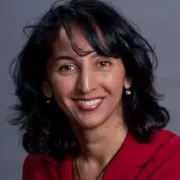
Rani Deshpande
Rani brings 20 years of experience in various aspects of financial inclusion, youth livelihoods, and nonprofit strategy and management. Most recently, she directed Save the Children’s $35M portfolio of youth and off-farm livelihoods development work in over a dozen countries. From 2010 to 2016 she led YouthSave, an initiative that assisted over 150,000 teens to open tailored savings accounts and save over $1.2M. Ms. Deshpande worked at CGAP from 2003-2006 and built institutional and industry capacity on financial products including savings and money transfers. She has also served as a strategy consultant to US nonprofits and worked directly with MSMEs in India and West Africa, providing technical assistance on production for export and small business management. Rani earned her undergraduate degree from Stanford University and a dual Master’s degree in International Affairs and Business from Columbia University. She is fluent in French and Marathi.
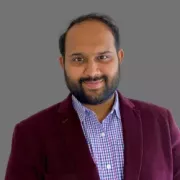
Sai Krishna Kumaraswamy
Sai Krishna Kumaraswamy is part of the Business Models pillar at CGAP. He works on digital finance innovations that enable improved livelihoods and expanded access to essential services for the poor, focusing on micro and small enterprise financing, asset finance and the intersection of gender and off-grid energy access. Previously, Sai Krishna worked as a researcher at the Gender Group and at the Global Infrastructure Facility of the World Bank. He has over eight years of emerging market experience providing audit, advisory, and consulting services to clients in the financial services, energy, infrastructure, technology and government sectors.
Sai Krishna is a Chartered Accountant. He obtained a Master’s degree in Political Economy and Development Economics from The Fletcher School at Tufts University, a Master’s degree in Liberal Arts from Ashoka University and an undergraduate degree in Accounting, Business and Finance from St. Joseph’s College, Bangalore. He is fluent in Tamil, Kannada and Hindi.
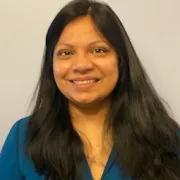
Snigdha Ali
Snigdha Ali, program officer for Bangladesh at the Gates Foundation, manages initiatives for advancing financial inclusion in Bangladesh, with a special focus on increasing women’s access to financial products and services. Prior to joining the Gates Foundation, she worked as a researcher and development practitioner and has more than 12 years of experience in gender, research and management. She has worked on cross-cutting issues impacting women like financial exclusion, nutrition, climate change, infrastructure, economic engagement, and social norms. She worked as the senior gender and research consultant at the World Bank and co-authored the book titled “Voices to Choices: Bangladesh’s Journey in Women’s Economic Empowerment,” published in 2019.
Snigdha also worked at BRAC in Bangladesh as the program head for two departments and managed two teams and six projects. She has also worked for IFPRI. She has experience in evaluating gender inclusion in the World Bank operations, organizational gender mainstreaming at BRAC, advocacy at the grassroots level, project operations, stakeholder engagement and policy advocacy at the national level. Snigdha has a master's of social science in economics from the University of Dhaka and a masters of social science in development sociology from Cornell University.
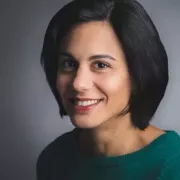
Yamsin Bin-Humam
Yasmin Bin-Humam works on analyzing excluded segments to more closely examine who remains financially excluded and how financial services might impact their lives. She also serves as a focal point for CGAP’s gender mainstreaming and facilitates an industry-wide community of practice on women’s financial inclusion. Before joining CGAP, Yasmin developed indicators measuring women’s equality under the law for the World Bank’s Women, Business, and the Law project and contributed to publications on legal barriers to women’s economic empowerment. Her previous research includes the historical evolution of labor and family law reform in countries around the world, and she has compiled legislation on banking, nonbank financial institutions, and consumer protection regulations. Her earlier work experience spans the public, private, and non-governmental sectors. Yasmin has Juris Doctorate and Master’s degrees from Georgetown University and a Bachelor’s degree in economics from Harvard.
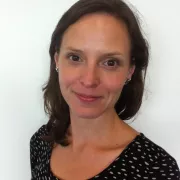
Mary Roach
Mary is the co-founder and COO of Boost, a B2B commerce platform powering growth for Africa’s convenience economy in Ghana, South Africa and Nigeria. Before launching Boost, Mary spent over a decade supporting and investing in emerging market start-ups through roles at Loowatt, Ceniarth, the GSMA, and M-KOPA. She also worked with GE Power Generation and Engineers Without Borders Canada. Mary holds an MBA from Oxford University and a Bachelor in Chemical Engineering from McGill University.
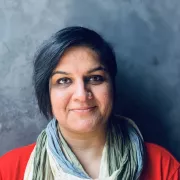
Nisha Singh
Nisha has over 17 years of experience promoting access to finance and financial market systems development, with a focus on women’s economic empowerment and inclusion. Nisha worked at The SEEP Network from 2008 and 2016 to promote inclusive market systems development by building partnerships across the 120+ SEEP member organizations and associated stakeholders. Since 2017 her work has focused on increasing economic opportunities for women through innovations in financial services as well as gender mainstreaming for private sector actors. Nisha has a master’s degree from the School of Social Policy at the University of Pennsylvania, and an MBA from the University of Hyderabad.